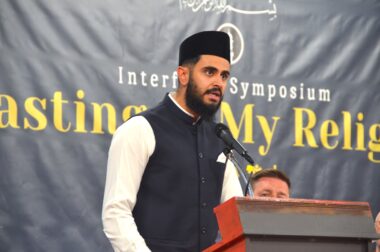A landmark study from Monash University is investigating the economic and social contribution informal sports participation has on the wellbeing of diverse groups of people and how governments, sport and health agencies can further support this participation.
Over the past decade there has been a continued decline in organised sport participation and the Intergenerational Review of Australian Sport report is predicting that this participation will drop by a further 10 per cent by 2030.
Instead, there’s been a shift towards informal sports participation. From ocean swimming, casual basketball, indoor soccer, cycling or running groups, informal sport participation is growing in popularity. These less tangible activities are also more appealing to diverse groups of people who are often under-represented in mainstream sport.
Lead researcher, Professor Ruth Jeanes from the Faculty of Education, has been analysing the changes in sports participation and says government, sport and health agencies need to be better equipped to understand how to support informal sporting opportunities.
“This study represents the first major analysis of informal sport within Australia and provides a detailed evidence base for the economic and social impact of informal participation,” said Professor Jeanes.
“Our analysis has indicated that informal sport can offer health savings of more than $3 million a year through the opportunities it provides for physical activity alongside numerous mental health and social connection benefits. It’s important that government, sport and health agencies are prepared to support this new shift in the format of sport participation.”
Carmel Guerra OAM, Director and Chief Executive Officer of the Centre for Multicultural Youth says the project illustrates the value of informal sport to more readily connect with, attract and retain diverse young people.
“From our work, we’ve witnessed how informal sport can be a powerful tool to connect and engage young people. It not only provides connection with their peers, and with their local community to help build that sense of belonging, but also provides an opportunity to connect young people in with services available to them, which they may not be aware of.
“A great example is the casual Late Night Hoops sessions our Le Mana Pasifika team runs on Friday nights with the City of Casey. Our youth workers meet young people where they’re at, offering an informal open session to come along and play basketball together. It’s attracting huge numbers of attendees each week, as they’ve created a relaxed and safe space for young people to hang out while also having access to further support if needed.”
From the participants' perspectives, informal sports can offer a number of benefits, including flexibility, connection to community, improvements to mental health and wellbeing and access to traditional cultural sports.
“We’ve been running soccer games and football for two decades since I came to Australia. Just been playing informally in the past, that’s how it started, and growing from one team to two teams and now there are over 17, 18, almost 18 teams that all are part of that structure. It was important for Afghans new here to have this place to come and meet other Afghans and we are still mostly Afghan people now, though we do have some South Sudanese join us,” said a male research participant who is a leader of a Soccer Group.
As part of the research project, the researchers worked with four case study local authorities. These included Hume City Council and City of Casey in Victoria, and City of Canning and City of Stirling in Western Australia.
Research participants described informal sports as being ‘safe spaces’ where they felt welcomed, valued and accepted. Many of the participants discussed poor experiences in other forms of traditional club-based sport, ranging from feelings of not belonging through to experiencing overt and institutionalised racism. Informal sport was seen as ‘different’ in this respect for participants as it provided a setting that was responsive to their culture, beliefs and where they felt a sense of belonging.
“The perception of safety experienced within informal settings is another critical aspect of how informal sport can offer a range of benefits for participants,” said Professor Jeanes.
The capacity for informal sport to support a diverse participation base and its rapidly rising rates of participation presents a compelling need for robust research to inform policy and generate practical guidance for a range of agencies.
To learn more about the project, please visit: https://www.monash.edu/education/research/projects/informal-sport-health-social-resource-for-diverse-young-people
- ENDS -
UNIVERSITY PARTNERS
Edith Cowan University, Victoria University
INDUSTRY PARTNERS
Centre for Multicultural Youth, VicHealth, Cricket Victoria, The Department of Local Government, Sport and Cultural Industries
MEDIA ENQUIRIES
Hande Cater, Senior Media and Communications Advisor
T: +61 3 9903 4840
M: +61 466 302 936
E: [email protected]
GENERAL MEDIA ENQUIRIES
Monash Media
T: +61 (0) 3 9903 4840
E: [email protected]
For more Monash media stories, visit our news and events site



